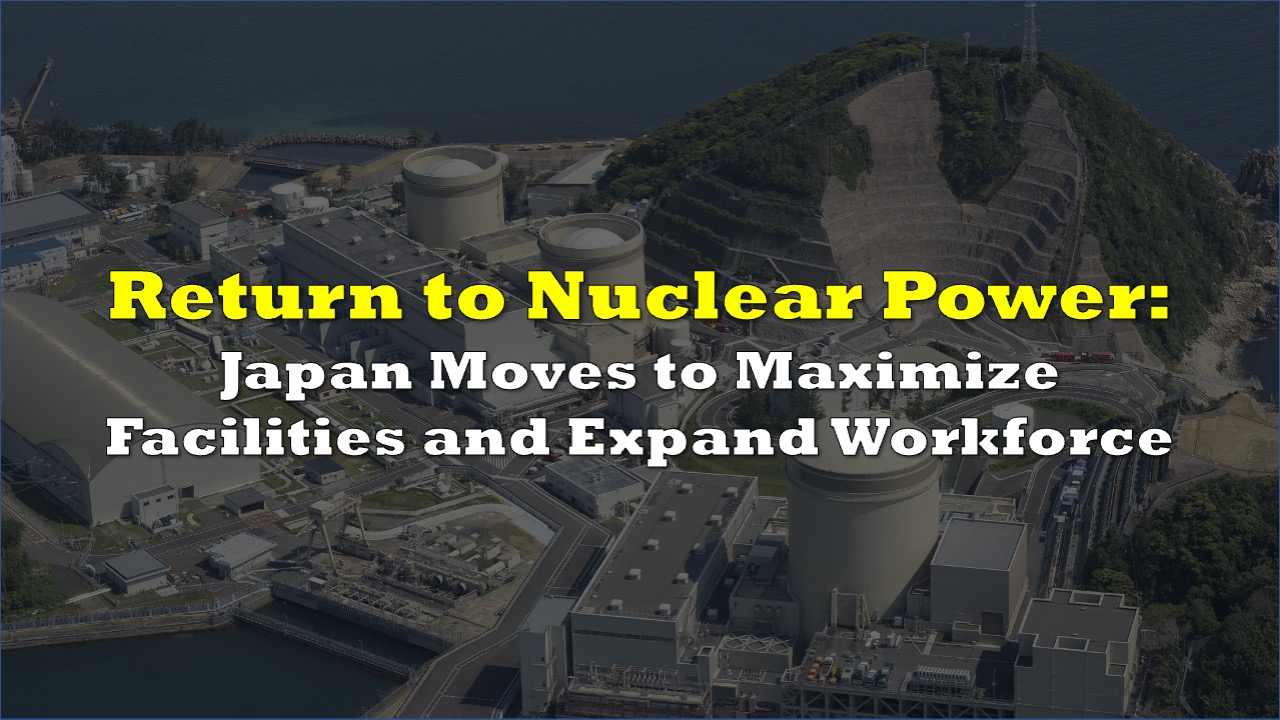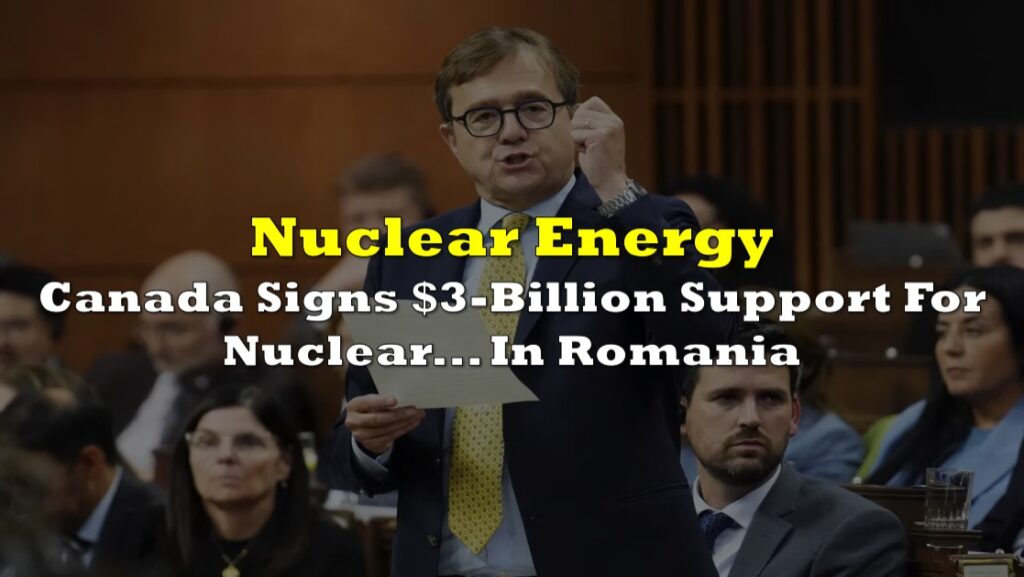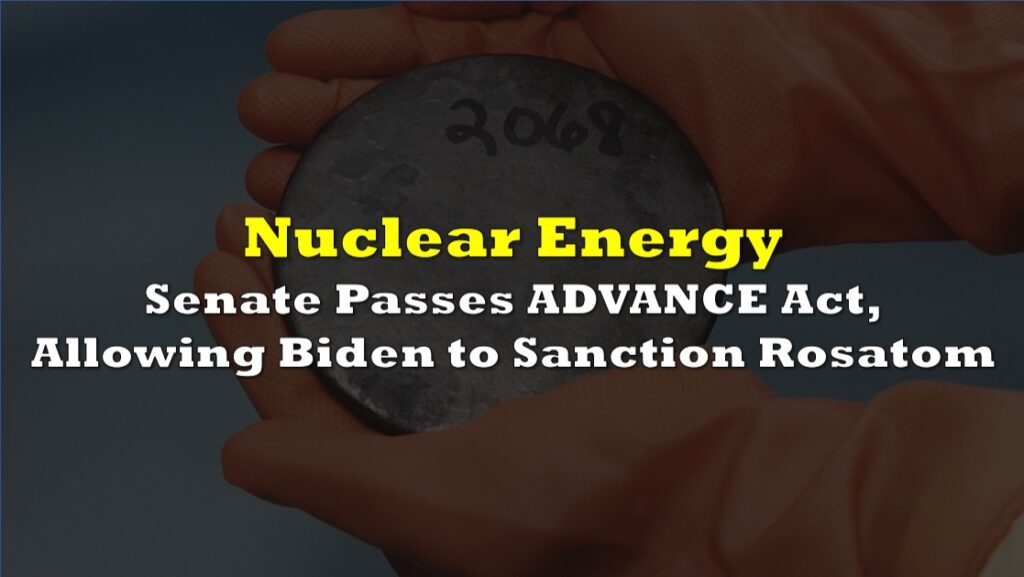Japan has started taking steps toward its u-turn on nuclear power, reversing policies established after the 2011 Fukushima disaster.
Its Cabinet on Friday formally adopted a policy that was approved by Prime Minister Fumio Kishida’s panel in December to allow for nuclear reactors to operate beyond 60 years and build new reactors to replace decommissioned units.
The move marks a major policy shift for the government and also a significant change in public opinion. People were previously generally and strongly opposed to nuclear power following the devastating Fukushima meltdown which triggered a massive earthquake and tsunami.
The Kishida administration’s “green transformation” policy has been fueled largely by Russia’s invasion of Ukraine, and its immediate impact on the markets, which saw prices of natural gas and coal shattering records.
🇯🇵FULL STEAM AHEAD🇯🇵
— Decouple Media (@DecoupleMedia) February 12, 2023
Japan will “make maximum use” of nuclear power to go cut carbon while ensuring stable electricity supply.
Does this mean turning on more reactors mothballed after Fukushima? Or building new reactors? YES! 🧵 pic.twitter.com/6eVOUpqXMd
Like many other nations, import-reliant Japan wants to take back control of its energy supply. Additionally, embracing nuclear will also help the East Asian country hit its 2050 net-zero emissions target.
Legislation needed to enact the policy was submitted to parliament on Friday. The new policy will extend the operational lifespan of nuclear reactors beyond the 60-year limit by excluding time spent on offline periods, including inspections, in calculating the service life of a unit.
Aging reactors, meanwhile, will only be allowed to be replaced by safer next-generation units within the premises of power stations whose reactors have been scheduled for decommissioning. The nation intends to begin operating next-generation reactors in the 2030’s.
Addressing a significant source of concern among the public, the policy also makes the final disposal of high-level radioactive waste from nuclear plants the government’s responsibility. Managing nuclear waste remains a challenge in moving the country’s renewed nuclear policy forward.
The government has yet to select a final disposal site. The selection process will involve a survey based on scientific data and documents and will include a dialogue with local representatives. The government, which has only been able to survey two municipalities in Hokkaido so far, hopes to expand the area for the first-stage survey.
Local governments that will accept the survey will receive support from the national government, as prescribed by the new policy.
🇯🇵
— Nuclear Hazelnut 👷🏻♀️ (@NuclearHazelnut) February 11, 2023
Japan's Cabinet has approved a policy to allow new nuclear power reactors to be constructed & the operation of existing reactors to be extended from 40 to 60 years.
What a great example to decarbonize the grid! pic.twitter.com/eF8rezgzA8
To implement the policy, the government estimates over 150 trillion yen in public and private investments will be needed over the next decade. It will issue roughly 20 trillion yen ($152 billion) in green transformation bonds to boost investment in decarbonization projects.
As part of the steps to maximize the country’s nuclear energy facilities, energy producers have also begun looking into expanding the size of their workforce.
Mitsubishi Heavy Industries will increase fresh graduate and mid-career recruits in its nuclear power sector to a maximum of roughly 130 people over the next two years, marking an employment growth of 40% compared to this year.
IHI, meanwhile, has added more than 800 personnel to its nuclear power division this fiscal year, coming from just about 150 people two years ago.
Information for this briefing was found via Japan Times, NHK, Kyodo News, Twitter, and the sources and companies mentioned. The author has no securities or affiliations related to the organizations discussed. Not a recommendation to buy or sell. Always do additional research and consult a professional before purchasing a security. The author holds no licenses.









